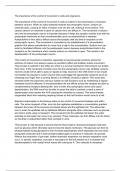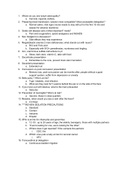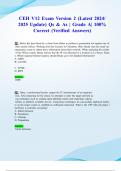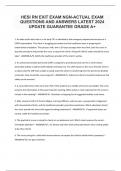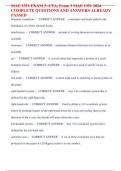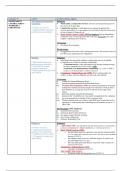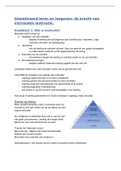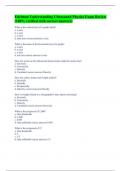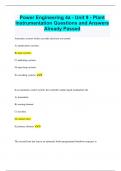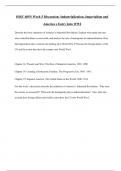Essay
Biology 25 mark essay: the importance of the control of movement in cells and organisms
- Module
- Unit 2 - Cells
- Institution
- AQA
This is an essay based on paper 3 past paper 25 mark question on the control of movement in cells and organisms, covering both year 12 and year 13 content.
[Show more]
